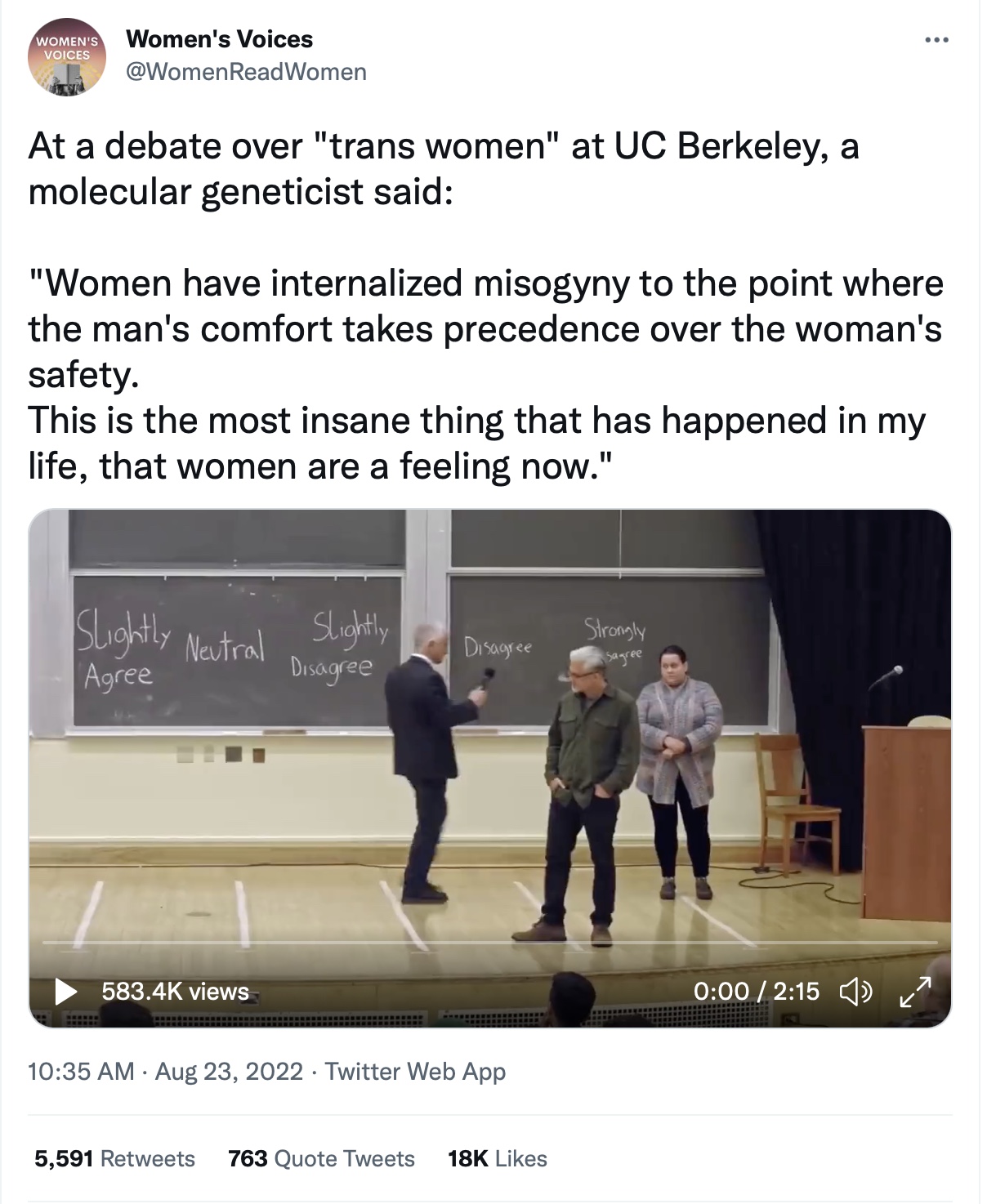Andrew Sullivan, pulling back the curtain to expose massive educational/governmental/health-care dysfunction that is encouraging exponentially increasing numbers of our children to seek irreversible surgery and a lifetime of powerful cross-sex hormones for their physically healthy bodies:
"What is gender identity? Since this very new term is now cemented in law, corporate practice, and now medicine as well, it’s a good question. Here is an official description from HRC, the biggest “queer” lobby:
"One’s innermost concept of self as male, female, a blend of both or neither – how individuals perceive themselves and what they call themselves."
The key word, it seems to me, is neither. It means that your gender may not have anything to do with being male or female or on any kind of masculine/feminine spectrum. Your gender identity can be a tree, a fish, a Nazi, a puddle, or an earthworm — and these innermost identities must always be affirmed and be protected in law.
Like most decent people, I am more than fine with accepting that some people really do deeply feel that they are one sex and yet biologically are the opposite one. It’s rare, but very real, and I have long supported care and protection for this tiny minority of marginalized people we now call transgender. Mercifully, they are now covered by the Civil Rights Act of 1964. And Americans are on board: in a new poll, support for protecting transgender people from discrimination has 64 percent support and only 10 percent opposition.
But what on earth does it mean to identify as no human gender, neither male nor female nor a mix, but as, say, a tree — and use “tree” as a pronoun? You think I’m kidding, don’t you? Just making shit up to make it sound insane. But wait:
"Students are introduced to gender pronouns through the children’s book, “They, She, He: Easy as ABC.” The somewhat familiar pronoun ze is introduced, as are more bespoke possibilities. On one page, “Diego drums and dances. Tree has all the sounds” (tree is Diego’s preferred pronoun). For a character named Sky, all of the pronouns are right."
This is in a first-grade curriculum in Evanston/Skokie School District 65, a public-school system in the Chicago suburbs, as reported by Conor Friedersdorf. The pronoun “tree” has already been deployed by some as legitimate. I noted recently how, in another HRC-recommended book for kids, a baby “can’t decide what to be. Boy or girl? Bird or fish?” Yes: fish. The idea that children can identify as other species has now been approved in the education world. It’s being taught to your kids as truth. It is the Biden administration’s and “LGBTQ+” lobby’s view of what “gender identity” is.
It is anything you want it to be. And must always be affirmed by others."
Sullivan concludes:
[T]he term “gender identity” is so nebulous, so completely subjective, that it can be used to describe literally anything, any perversion, any mental illness, any deranged fantasy — like South Park’s Gerald Broflovski’s compulsion to become a dolphin. And it’s being used as a construct to tell first-graders that they can identify as a tree and a fish now. In public schools. With the full backing of the president and the Democratic Party.
I’m not nut-picking. I’m using the official description of “gender identity” to show that the term itself is nut-enabling. There are no limiting principles in a truly nebulous product of postmodernism now worming its way into our legal system.
[More . . . ]

